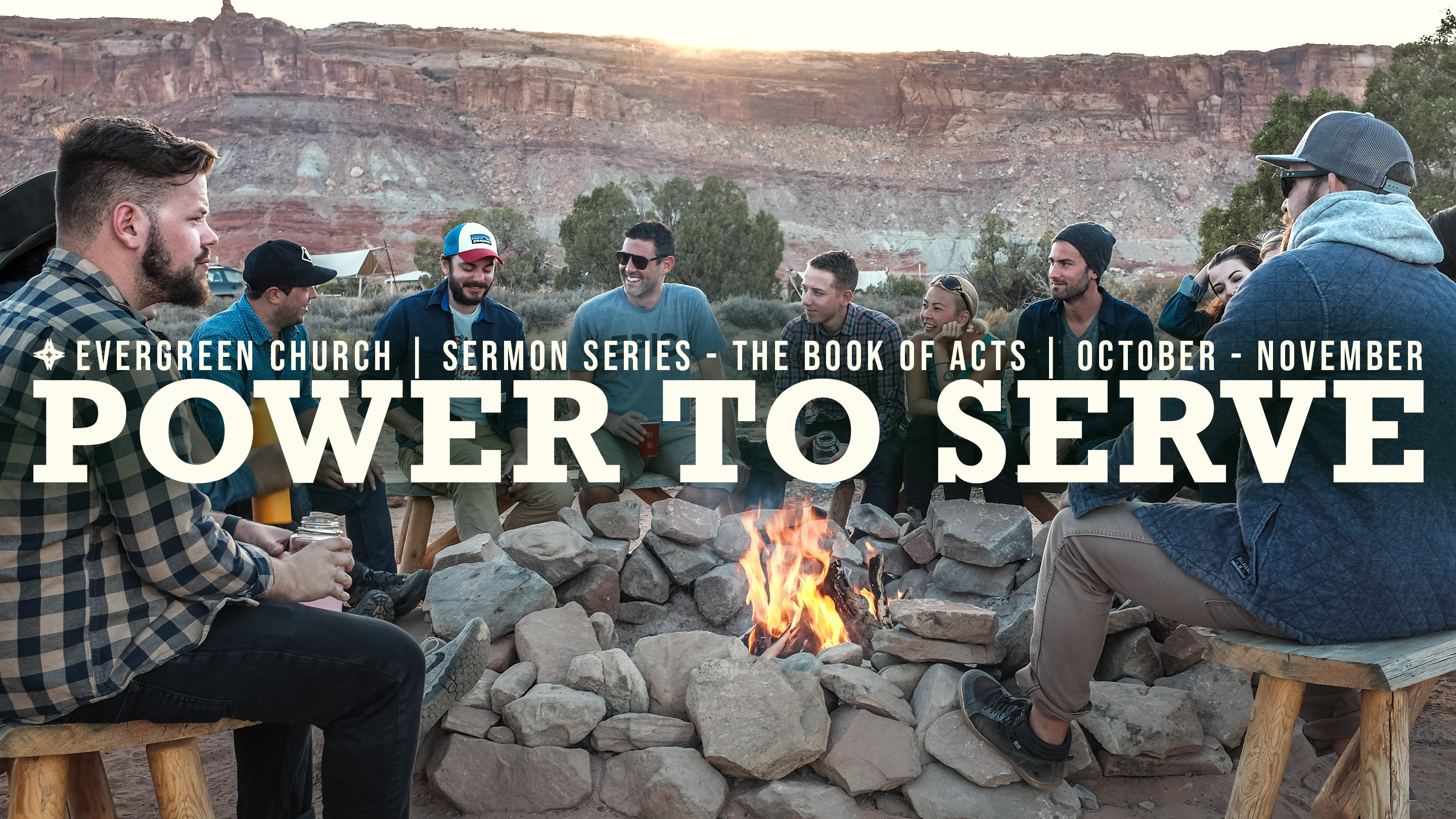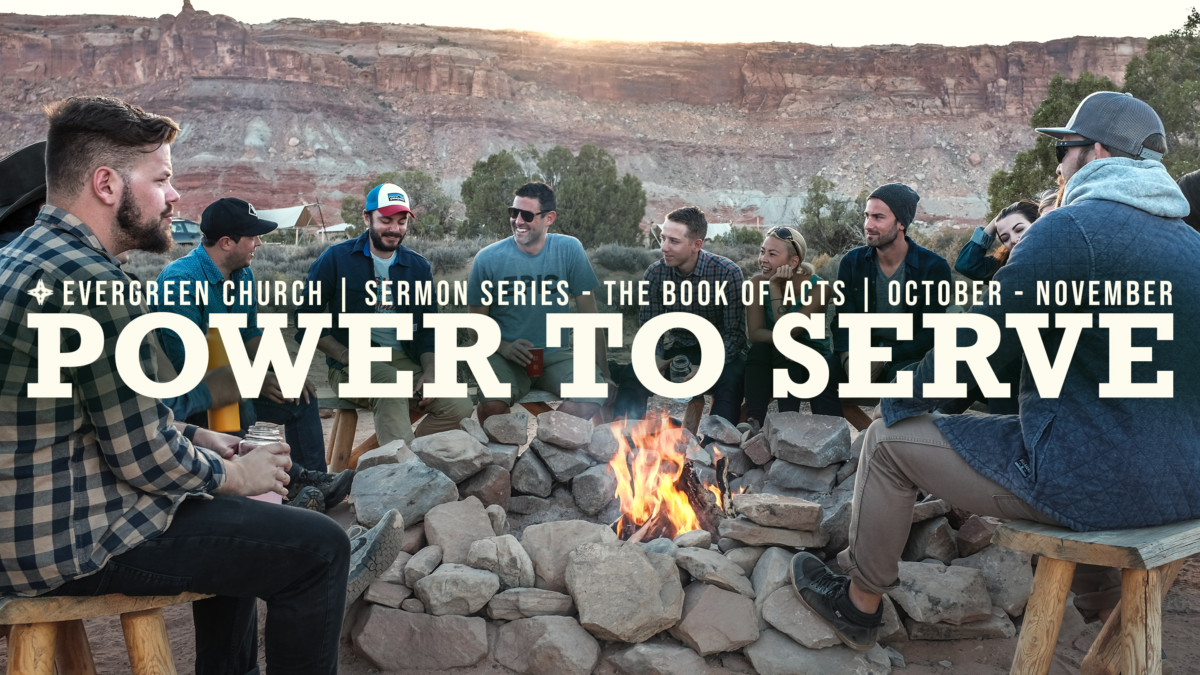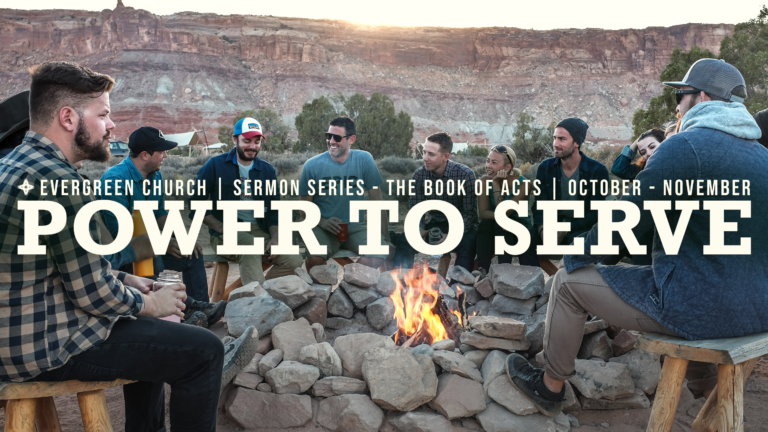[Listen to an audio version here]
 It’s easy to look at the great figures of history and see what they’ve accomplished and think that our lives are insignificant. Who are we in the light of such great people? Who are we in light of David? Or Moses? Or Paul? Or Peter?
It’s easy to look at the great figures of history and see what they’ve accomplished and think that our lives are insignificant. Who are we in the light of such great people? Who are we in light of David? Or Moses? Or Paul? Or Peter?
Well, God may not call us to preach to thousands, to conquer kingdoms, to liberate a nation, or to plant churches, but that doesn’t mean that we have no purpose. This month, I want to highlight from the book of Acts several people who demonstrate the variety of ways in which we can participate in God’s redemptive plan and make an impact in the world that lasts for eternity.
Today, we begin with a woman named Tabitha. I want you to see what she did and the effects of what she did.
What She Did
We meet Tabitha in the context of Peter’s travels. God was getting his Apostles out into the world, and they were beginning to travel and make an impact in the world. They were beginning to see that they had to put the new wine into the new wine skins. They were leaving behind the old wine skins of the religious practices of the elders and even of the Old Testament. They were good for the time, but now the Gospel was going worldwide. Things had to change.
We see this change in the fact that Peter stayed with Simon the tanner. Because Simon worked with dead animals, he was “unclean” and would have had to stay outside the city gates. The fact that Peter stayed with him was evidence that his views were changing. This would be made explicit in his encounter with Cornelius in chapter 10. I encourage you to read it.
When Peter came to Joppa, our text tells us that there was a disciple named Tabitha. A disciple is a student or follower. Those who follow Jesus are those who listen to what He teaches and then seek to imitate Him and live by His teachings. In those days, a student would literally follow their teacher around listening to his teachings. Today, disciples listen to Jesus’ Word in the Bible and seek to put it into practice in their lives.
Tabitha was a woman who was “always doing good.” Here is the goal of the Christian, to be a person who is always doing good. In this way, Tabitha was and we can be disciples of Jesus. Peter describes Jesus as one who “went around doing good” (Acts 10:38). Those who go around doing good are like Jesus. That’s why Paul says that we are called as disciples to do good. He says, “Let us not become weary in doing good, for at the proper time we will reap a harvest if we do not give up. Therefore, as we have opportunity, let us do good to all people, especially to those who belong to the family of believers” (Galatians 6:9–10).
The text points us to the object of these good works. She was “always helping the poor” (Acts 9:36). Why was she doing this? She did it because this was Jesus’ agenda. Jesus wanted her to make the poor a priority. Here is what Jesus said:
When you give a luncheon or dinner, do not invite your friends, your brothers or sisters, your relatives, or your rich neighbors; if you do, they may invite you back and so you will be repaid. But when you give a banquet, invite the poor, the crippled, the lame, the blind, and you will be blessed. Although they cannot repay you, you will be repaid at the resurrection of the righteous (Luke 14:12–14).
Tabitha took this to heart and made helping the widow and the orphan her priority. We should, too.
What did doing good to the poor look like? The sad thing was that Tabitha had died just as Peter arrived. When Peter went and saw her where they had lain her body, “All the widows stood around him, crying and showing him the robes and other clothing that [Tabitha] had made while she was still with them” (Acts 9:39). This was the sort of good thing that Tabitha had done for the poor.
And this gives us an idea of how we can be partners with God in the work of redemption. We can do good. We can give our money, time, and resources to do good unto others.
What does this look like today? It may mean that we see a need in someone’s house and work on it with them, as Live It does all over this county. It may mean that we speak to people in our neighborhood, giving of our time. It may mean we get involved in civic organizations. It may mean helping a young family by watching their children. It may mean foregoing something we would want to do to let others enjoy things. It may mean having people over to our home.
In doing this, we will need to be strategic. We have limited resources and an absolutely limited amount of time. Where should we focus our energy? We may have friends and family to connect with, but the example of Tabitha reminds us that Jesus wants us to put the least of these on our list of priorities. Where are the least of these in your schedule? I know this is hard. Jesus calls us to take a hard look at our schedule and priorities and say “no” to some good things in order to do those things that are best for His kingdom.
The Effects of What She Did
But this passage reminds us that doing good is not without its rewards. As the Apostle Paul says, “we shall reap, if we do not give up.”
We see the rewards in the people who mourned for her. They were so deeply moved by what she had done that they wept at her funeral. She had loved them so well.
When the men went down to the MNA Disaster Response Warehouse, Mike Kennamer, who coordinates the work at the warehouse, told us about his experience in going to places where natural disasters had wrought devastation. He said that he found again and again that people were amazed at what the volunteers did. Why, they would ask, would you take your vacation time to come and help us? Then, he would tell them about how much Jesus had done for him and that this was his motivation. That’s what “always doing good” can lead to.
But God had greater things to do here. When Peter went up to the room, he knelt down and prayed. Then, he stood up. He spoke to Tabitha, “Tabitha, get up.” He said. Then, she opened her eyes and got up. God had performed a miracle, and Peter presented her to them alive.
The testimony of her resurrection was so great that it spread all around. “This became known all over Joppa, and many people believed in the Lord” (Acts 10:42). This is a reminder that we never know what God will do when we step out in faith to do good to those around us. God takes what we do and miraculously spreads it much further than we can imagine.
I heard about an example of this at our Presbytery meeting a few weeks ago. Our Mercy Ministry Committee has gotten involved in medical debt relief. For pennies on the dollar, you can wipe out a huge amount of medical debt. A Christian organization is partnering with people who want to serve the poor in this way. The chairman of our Mercy Ministry Committee told about one woman whom they had helped relieve from hundreds of thousands of dollars of debt. They not only helped her, they got to know her. She was so moved by this demonstration of love that she accepted the love of Christ into her life. That’s what God will do when we step out in faith to do good.
So, how can we do good? Take the things you actually already do and ask yourself, how can I use this to do good? Who are the people in my life to whom I can do good? Who has Jesus already put in my life that I can bless as a way of showing His love? Once you’ve answered that, do it. You never know how God made use it. Amen.
________
Photo by Marília Castelli on Unsplash








 When kids are little, few things are more exciting than a visit from the grandparents. They greet these visitors with an eagerness that warms the heart. But this doesn’t last forever. These same kids get busy with life and other things get their attention. They may still love their grandparents, but the relationship changes. When this chapter of life closes, it’s easy to look back on it with a joy mixed with sadness. You realize that life has moved on.
When kids are little, few things are more exciting than a visit from the grandparents. They greet these visitors with an eagerness that warms the heart. But this doesn’t last forever. These same kids get busy with life and other things get their attention. They may still love their grandparents, but the relationship changes. When this chapter of life closes, it’s easy to look back on it with a joy mixed with sadness. You realize that life has moved on.
